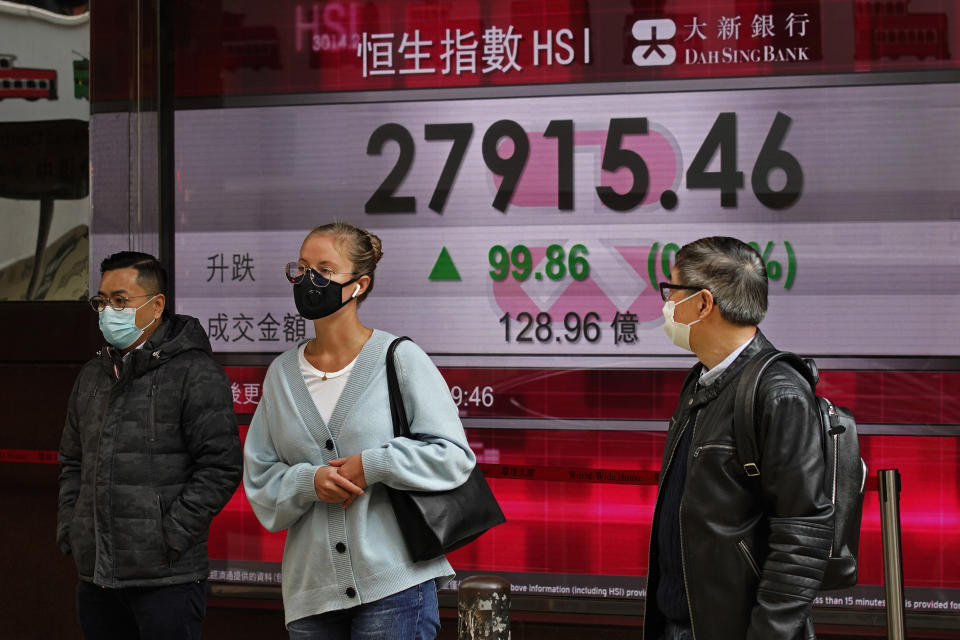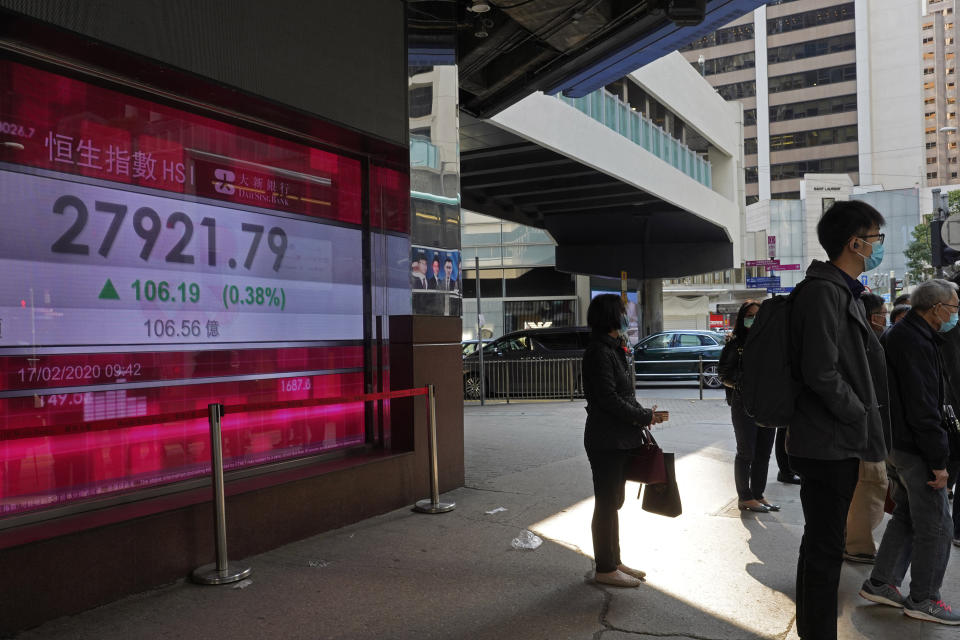In This Article:
BANGKOK (AP) — Markets were mixed in Asia on Monday, with Japan's benchmark slipping 0.8% after the government reported the economy contracted 6.3% in annual terms in the last quarter. China's shares got a boost after the central bank stepped in to help the economy with a rate cut, extra buying of securities and tax cuts.
The Nikkei 225 in Tokyo was at 23,507.63 by late morning, while Sydney's S&P ASX/200 edged 1% lower to 7,120.00. South Korea's Kospi was flat, at 2,242.50, while the Hang Seng in Hong Kong climbed 0.5% to 27,953.73.
The Shanghai Composite index jumped 1.3% to 2,955.07 after the central bank and finance minister announced a slew of measures to support the economy as the country battles an outbreak of a new virus that has killed 1,770 people and infected nearly 70,000.
Shares fell in Taiwan and were flat in Bangkok and Jakarta.
The contraction in the Japanese economy, the world's third-largest, reflected the impact of typhoons, trade tensions and crimped consumer spending. The seasonally adjusted economic data was announced as Prime Minister Shinzo Abe faces pressure over spreading cases of the new viral illness COVID-19 and markets around the region see a mounting toll from its impact on travel and tourism as authorities strive to contain it.
“Consumer spending, which slumped following the tax hike in the fourth quarter of 2019, will now struggle to do anything except contract further in the first quarter as the impact of Covid-19 weighs on consumer sentiment, weighing in particular on the consumer services sector," ING said in a report.
“Some further government spending may help to curb any further contraction in GDP beyond 1Q20. But that will not stop what started off as a technical downturn from evolving into a full-blown recession," it said.
Thailand and Singapore also reported weak growth in the last quarter of 2019, in figures that like Japan's do not yet reflect the consequences of the coronavirus outbreak.
But good news came in the form of fresh help from the People's Bank of China, which cut its one-year medium-term lending rate to 3.15% from 3.25%. The central bank also injected some 200 billion yuan ($28.6 billion) and conducted 100 billion yuan ($14.3 billion) in reverse repos, in effect putting more cash into the market through short-term purchases of securities.
Such moves will likely be followed by still more, said Julian Evans-Pritchard, given that many of the companies worst affected by the virus outbreak are smaller ones that lack access to loans from major state-run banks.



